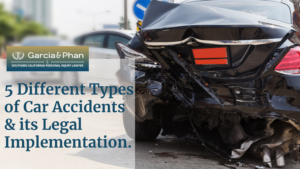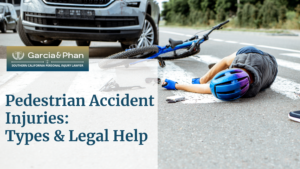Premises liability refers to the legal responsibility that property owners or occupiers have for injuries or accidents that occur on their property. This area of law holds property owners accountable for maintaining a reasonably safe environment for visitors, guests, customers, or tenants. Premises liability cases typically involve situations where someone is injured due to a hazardous condition on the property, and the property owner or occupier may be held liable for those injuries.
Understanding California premises liability law is essential for property owners to avoid legal repercussions for accidents and injuries on their premises. Individuals benefit from this knowledge by being aware of their rights and their ability to seek compensation for injuries caused by property owner negligence. It promotes safety and accountability, encouraging property owners to maintain safe premises while providing victims with legal recourse for recoverable damages.
Property owners have a duty of care to visitors
Under California premises liability law, property owners bear a legal duty of care to individuals who enter their premises. This responsibility entails maintaining reasonably safe conditions and warning visitors about known hazards. The extent of this duty depends on the visitor’s status, such as invitees or licensees. Failing to fulfill this duty can result in legal liability and compensation obligations if injuries occur due to negligence.
To establish a premises liability claim, the plaintiff must prove the following elements
In accordance with California premises liability law, plaintiffs must establish specific elements to substantiate a claim. This includes demonstrating that the property owner owed a duty of care based on the visitor’s status, that this duty was breached due to hazardous conditions or inadequate warnings, that the breach caused injuries, and that damages resulted from the incident.
California has a comparative negligence doctrine
Within California premises liability law, the state upholds a comparative negligence doctrine. This legal principle ensures a fair assessment of fault in personal injury cases, allowing plaintiffs to seek compensation even if partially at fault. Damages are reduced in proportion to their degree of fault, following California’s pure comparative negligence system.
California has a statute of limitations for premises liability claims
In compliance with California premises liability law, there exists a statute of limitations governing such claims. This statute dictates a specific timeframe within which plaintiffs must initiate legal action following an injury on another person’s property. Generally, it’s two years from the date of injury, though exceptions may apply depending on the circumstances and claim type.
California has a number of special rules for premises liability claims involving children
California premises liability law recognizes special rules when it comes to claims involving children. These rules consider the age and capacity of the child in assessing liability. Property owners must anticipate child-related risks and even attractive nuisances like swimming pools or play equipment require additional safeguards and warnings to prevent harm to children.
Conclusion
We have equipped you with vital insights into the realm of premises liability law in California, shedding light on five pivotal factors crucial for anyone grappling with such cases. These incidents can have profound repercussions on your life, underscoring the paramount need to grasp your rights and the legal intricacies at play. At Garcia & Phan Law Firm, we are the embodiment of expertise in premises liability cases, with an unwavering command of California’s legal landscape in this arena. Should you or a cherished family member find themselves victim to an injury on another’s property, rest assured that our door is always open. Contact us today at (714) 586-8298, and allow us the privilege of being your unwavering legal champions. We pledge to assess your case meticulously, protect your rights tenaciously, and relentlessly pursue the compensation you so rightfully deserve for your suffering and losses. Your justice is our relentless pursuit.






